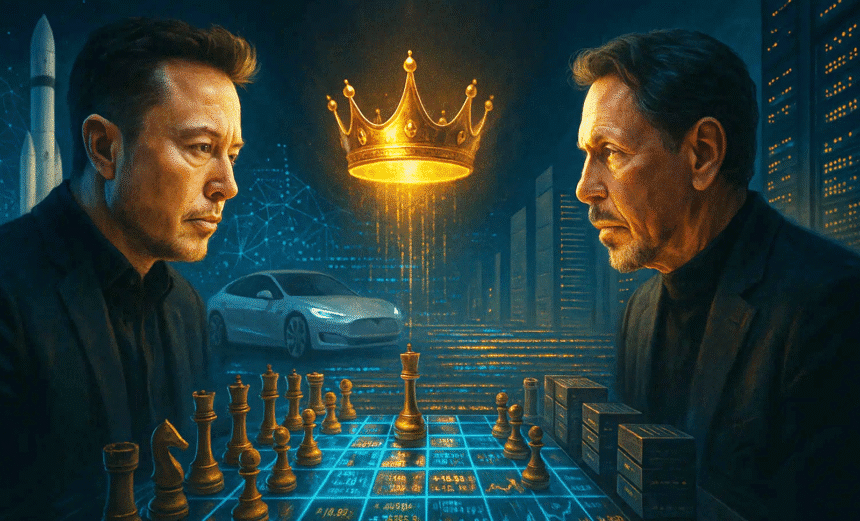It was that one kind of Wall Street drama you couldn’t script better even if you tried. One moment, Larry Ellison, the 81-year-old co-founder of Oracle, had snatched the title of the world’s richest man from Elon Musk. A few hours later, the Tesla tycoon had reclaimed his throne. For a brief window on Wednesday morning, the spotlight shifted from Musk’s rockets and robotaxis to Ellison’s cloud-driven empire and the numbers behind the tussle revealed just how volatile billionaire wealth has become in the era of AI.
All this began when Oracle stock surged more than 36% after markets opened, which was fueled by a blockbuster earnings report and jaw-dropping multibillion-dollar deals with heavyweights like OpenAI, Meta, Nvidia and even Musk’s own xAI. That meteoric rise sent Ellison’s fortune skyrocketing by $100 billion in less than an hour, crossing himself past Musk by a cool billion dollars. Just for a context, the difference alone could support the annual lifestyles of five million American families.
But markets give, and markets take away too. By the closing bell, Oracle shares had cooled, dropping Ellison back below Musk, who ended the day valued at $384.2 billion to Ellison’s $383.2 billion, according to Bloomberg’s Billionaires Index. Nevertheless, the quick flip underlined a significant change in how wealthy someone is on Earth might suddenly be decided not by vehicles and rockets but more by the person who controls the robots that are learning to think for us.
Ellison, who still owns about 40% of Oracle, framed the moment with characteristic bluntness during the earnings call saying that “AI changes everything.” Investors seem to agree. Oracle isn’t just building cloud data centers, it’s positioning itself to be the engine running AI-driven transformations in industries from healthcare to finance to law. The company projects cloud revenue will soar 77% this year, with even more staggering growth on the horizon.
Musk, by contrast, has been waging his own battle to keep investor faith alive. Tesla, once the crown jewel of his fortune, has shed 14% of its stock value this year. While Musk has tried to redirect attention toward Tesla’s ventures in robotics and AI-powered self-driving technology, the headlines have been less than flattering. Sales in Europe plunged 40% this summer, marking seven straight months of decline. His open alignment with far-right politicians on X hasn’t helped, alienating customers in both Europe and the U.S.
Both billionaires, whose riches could finance the GDP of tiny countries, are still in extremely wealthy air despite all the drama. However, Musk and Ellison’s back-and-forth on Wednesday reveals more than just individual wealth. In a single trading session, fortunes can increase or decrease by tens of billions, offering a glimpse of the future global order being created by artificial intelligence.
Although Musk eventually took back the top spot, Ellison’s brief tenure served as a warning that the AI competition is no longer about the future. It’s already changing the billionaire scoreboard, and it’s becoming increasingly profitable.













